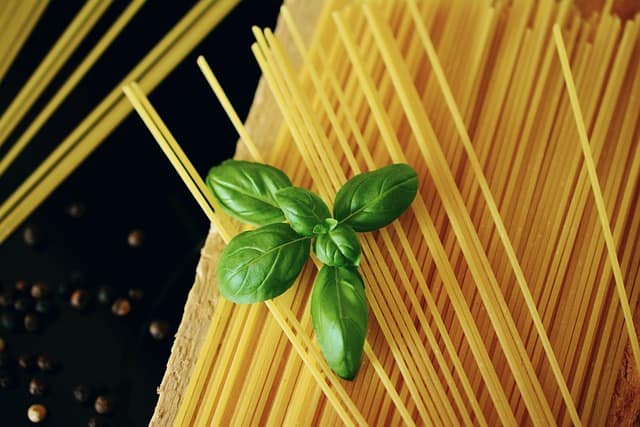Mustard and basil can be combined in cooking. They can complement each other well and add a unique flavor to dishes. Mustard adds a tangy and slightly bitter flavor, while basil provides a sweet and herbaceous note. The combination can work well in marinades, dressings, and sauces, as well as in meat and vegetable dishes.
However, it’s important to use them in the right proportions to avoid overpowering one flavor over the other.
Food Dishes That Combine Mustard And Basil
Here are some food dishes that combine mustard and basil as ingredients:
- Mustard and basil roasted chicken: Chicken is marinated with a mixture of mustard, olive oil, basil, garlic, and lemon juice before roasting in the oven.
- Mustard and basil salad dressing: A simple dressing made with Dijon mustard, balsamic vinegar, olive oil, honey, and fresh basil can be used to dress any salad.
- Mustard and basil potato salad: Cooked potatoes are tossed with a dressing of Dijon mustard, olive oil, red wine vinegar, garlic, and fresh basil for a flavorful side dish.
- Mustard and basil grilled vegetables: Grilled vegetables, such as zucchini, eggplant, and peppers, are brushed with a mixture of Dijon mustard, olive oil, garlic, and fresh basil for added flavor.
- Mustard and basil pasta: Cooked pasta is tossed with a sauce made with Dijon mustard, heavy cream, parmesan cheese, garlic, and fresh basil for a creamy and flavorful dish.
These are just a few examples, but there are many other ways to combine mustard and basil in cooking. Combining mustard and basil in food dishes adds a tangy, slightly bitter note and a sweet, herbaceous touch, creating a complex and flavorful taste.
Mustard And Basil Comparison
| Factor | Mustard | Basil |
|---|---|---|
| Flavor | Tangy, slightly bitter | Sweet, herbaceous |
| Color | Yellow to dark brown | Green |
| Origin | Europe and Asia | Central Africa, Asia, and Mediterranean |
| Form | Seeds or prepared condiment | Fresh or dried leaves |
| Culinary use | Used as a condiment, seasoning, or flavoring agent in dishes such as dressings, marinades, and sauces. | Used as a fresh or dried herb in dishes such as sauces, soups, and salads. |
| Medicinal use | Has antimicrobial, anti-inflammatory, and analgesic properties. May aid digestion and improve heart health. | Has antioxidant, anti-inflammatory, and antibacterial properties. May improve digestion and relieve stress. |
| Aroma | Pungent, spicy | Sweet, floral, slightly spicy |
| Storage | Store seeds in an airtight container in a cool, dry place away from light and heat. Prepared mustard should be refrigerated after opening and used within a few months. | Store fresh basil in a glass of water on the counter or in the refrigerator. Dried basil should be stored in an airtight container in a cool, dry place away from light and heat. Use within a year for best flavor. |
Final Thoughts
Mustard and basil can be combined in cooking because they offer complementary flavors and aromas that can enhance the taste and aroma of many dishes. Mustard adds a tangy and slightly bitter note, while basil provides a sweet and herbaceous touch.
Their combination can work well in a variety of dishes, including marinades, dressings, sauces, and meat and vegetable dishes. By using them in the right proportions, cooks can create unique and flavorful dishes that are sure to delight their taste buds.

